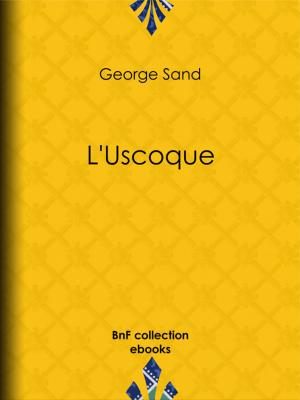| Author: | H. Rider Haggard | ISBN: | 1230002170244 |
| Publisher: | eBooks | Publication: | February 21, 2018 |
| Imprint: | Language: | English |
| Author: | H. Rider Haggard |
| ISBN: | 1230002170244 |
| Publisher: | eBooks |
| Publication: | February 21, 2018 |
| Imprint: | |
| Language: | English |
Now when by the favour of the most high God, Him whom I worship, to whom every man is gathered at last, now, I say, when I am old, many have urged upon me that I, Ramose, should set down certain of those things that I have seen in the days of my life, and particularly the tale of the fall of Babylon, the mighty city, before Cyrus the Persian, which chanced when he whom the Greeks called Nabonidus being newly dead, Belshazzar his son was king.
Therefore, having ever been a lover of letters, this I do in the Grecian tongue here in my house at Memphis, the great city of the Nile, whereof to–day I am the governor under Darius the Persian, for it has pleased God after many adversities to bring me to this peace and dignity at last. Whether any will read this book when it is written, or whether it will perish with me, I do not know, nor indeed does it trouble me much, since none can tell the end of anything good or ill, and all must happen as it is decreed. Man makes a beginning, but the rest is in the hands of fate; indeed his life itself is but a beginning of which the end is hid.
Now to–day when he is almost forgotten, I can say without fear that I am a king's son, for my father was none other than the Pharaoh Uah–ab– Ra, whom the Greeks called Apries and the Hebrews Hophra. Nor is my blood all royal, seeing that I was not the son of the wife of Pharaoh, but of one of his women, a Grecian lady named Chloe, the daughter of Chion, an Athenian by birth, of whom the less said the better for my mother told me that being a spendthrift and in want of money, he turned her beauty to account by giving her to Apries in exchange for a great present. I know no more of the matter because she would seldom speak of it, saying that it was shameful, adding only that her father was well–born; that her mother had died when she was an infant, and that before she came to the court at Sais, they saw many changes of fortune, living sometimes in wealth, but for the most part humbly and in great poverty which in after years bred in her a love of rank and riches.
Now when by the favour of the most high God, Him whom I worship, to whom every man is gathered at last, now, I say, when I am old, many have urged upon me that I, Ramose, should set down certain of those things that I have seen in the days of my life, and particularly the tale of the fall of Babylon, the mighty city, before Cyrus the Persian, which chanced when he whom the Greeks called Nabonidus being newly dead, Belshazzar his son was king.
Therefore, having ever been a lover of letters, this I do in the Grecian tongue here in my house at Memphis, the great city of the Nile, whereof to–day I am the governor under Darius the Persian, for it has pleased God after many adversities to bring me to this peace and dignity at last. Whether any will read this book when it is written, or whether it will perish with me, I do not know, nor indeed does it trouble me much, since none can tell the end of anything good or ill, and all must happen as it is decreed. Man makes a beginning, but the rest is in the hands of fate; indeed his life itself is but a beginning of which the end is hid.
Now to–day when he is almost forgotten, I can say without fear that I am a king's son, for my father was none other than the Pharaoh Uah–ab– Ra, whom the Greeks called Apries and the Hebrews Hophra. Nor is my blood all royal, seeing that I was not the son of the wife of Pharaoh, but of one of his women, a Grecian lady named Chloe, the daughter of Chion, an Athenian by birth, of whom the less said the better for my mother told me that being a spendthrift and in want of money, he turned her beauty to account by giving her to Apries in exchange for a great present. I know no more of the matter because she would seldom speak of it, saying that it was shameful, adding only that her father was well–born; that her mother had died when she was an infant, and that before she came to the court at Sais, they saw many changes of fortune, living sometimes in wealth, but for the most part humbly and in great poverty which in after years bred in her a love of rank and riches.















